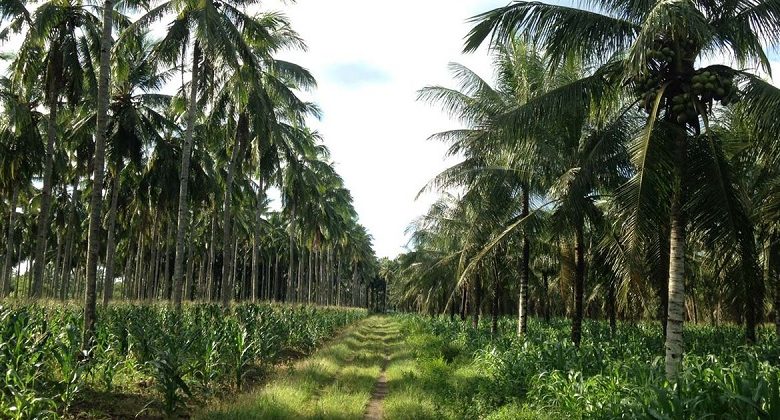Exploring Sustainable Practices in Coconut Oil Production

coconut oil vs palm oil , derived from the kernels or meat of coconuts, is a versatile and widely used oil with numerous applications in cooking, skincare, and industrial processes. However, like other vegetable oils, coconut oil production can have environmental and social consequences if not conducted sustainably. Here, we delve into the importance of adopting sustainable practices in coconut oil production and offer insights into key strategies for promoting sustainability in the industry.
Importance of Sustainable Coconut Oil Production
Sustainable coconut oil production is imperative for safeguarding both the environment and the livelihoods of smallholder farmers in tropical regions. By adopting practices like agroforestry and organic farming, the industry can mitigate habitat loss, biodiversity depletion, and soil degradation, preserving vital ecosystems. Additionally, promoting fair labour practices and ensuring equitable income distribution fosters social well-being and inclusivity within the coconut oil supply chain. Moreover, investing in infrastructure, technology, and capacity-building initiatives not only enhances productivity and product quality but also creates market opportunities for certified sustainable products, thereby bolstering the long-term economic viability of coconut-producing regions and strengthening their resilience against challenges.
Strategies for Promoting Sustainability
To promote sustainability in coconut oil production, it’s essential to implement a multifaceted approach. Encouraging certification programs like Rainforest Alliance, Fair Trade, or Organic certification ensures adherence to environmental and social standards. Engaging with local communities and stakeholders fosters collaboration on sustainable practices, enhancing farmer livelihoods and community empowerment. Exploring value addition opportunities through product diversification and innovation, such as virgin coconut oil and coconut-based cosmetics, boosts market value and meets consumer demand. Investing in research and development initiatives improves cultivation techniques, enhances crop resilience, and minimizes resource inputs. Lastly, consumer education raises awareness about sustainable options, enabling informed purchasing decisions and supporting ethical brands, thus creating a more sustainable coconut oil industry.
Certification:
Encourage the adoption of certification schemes such as the Roundtable on Sustainable Palm Oil (RSPO) or the Palm Oil Innovation Group (POIG). These certifications ensure that palm oil is produced in compliance with environmental and social standards.
Transparency:
Enhance transparency in the palm oil supply chain by disclosing information about suppliers, production practices, and sourcing regions. This helps consumers make informed choices and holds companies accountable for their sustainability commitments.
Traceability:
Implement systems to trace palm oil back to its source, enabling companies to identify and address issues such as deforestation, habitat destruction, and human rights abuses in their supply chains.
Zero-deforestation policies:
Adopt and enforce zero-deforestation policies to prevent the conversion of forests and peatlands into palm oil plantations. This involves conducting rigorous assessments of land use change and ensuring that palm oil is not sourced from areas with high conservation value.
Engagement with stakeholders:
Engage with local communities, NGOs, governments, and other stakeholders to understand their concerns and perspectives regarding palm oil production. Collaborate on initiatives that promote sustainable practices and address social and environmental challenges.
Investment in research and innovation:
Invest in research and innovation to develop more sustainable palm oil production techniques, such as agroforestry, intercropping, and the use of biopesticides. This can help increase yields while minimising environmental impact.
Support for smallholder farmers:
Provide support and incentives for smallholder farmers to adopt sustainable farming practices, improve productivity, and access markets for certified sustainable palm oil.
Consumer awareness and education:
Raise awareness among consumers about the importance of sustainable palm oil and empower them to make responsible purchasing decisions. Educate consumers about the environmental and social impacts of conventional palm oil production and the benefits of choosing certified sustainable products.
Conclusion
In conclusion, the adoption of sustainable practices in coconut oil production is essential for safeguarding the environment, promoting social equity, and ensuring economic resilience. By embracing certification programs, engaging with local communities, adding value to products, investing in research and development, and educating consumers, stakeholders can contribute to a more sustainable coconut oil industry. Through collective efforts, we can mitigate environmental degradation, enhance farmer livelihoods, and meet consumer demand for ethical and environmentally responsible products. Sustainable coconut oil production holds the key to a brighter future for both people and the planet, where prosperity is balanced with environmental conservation and social justice.





